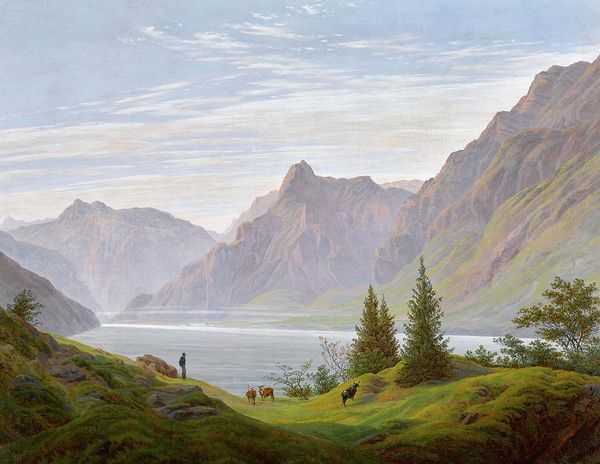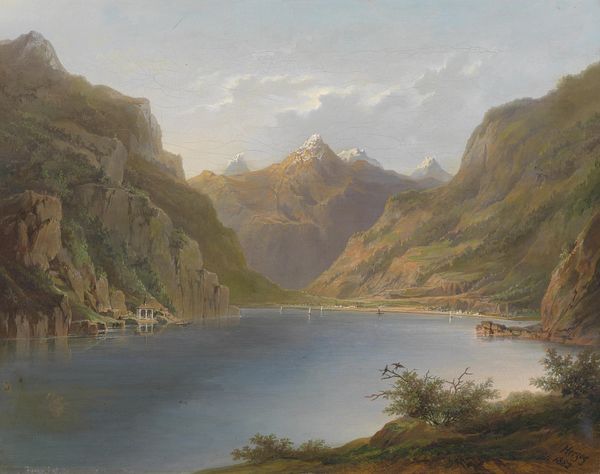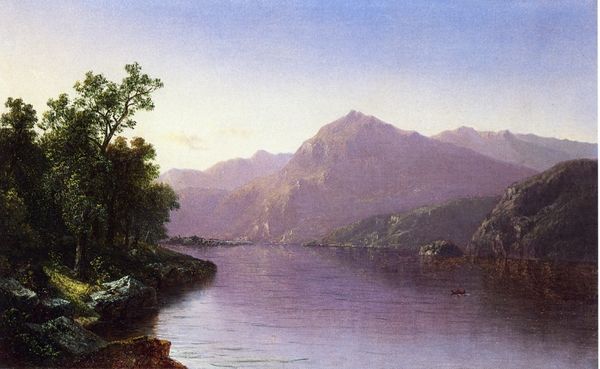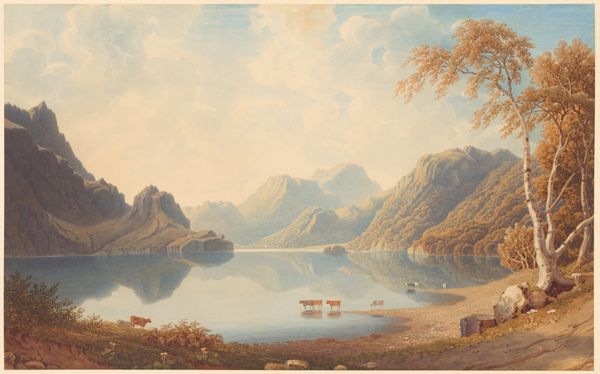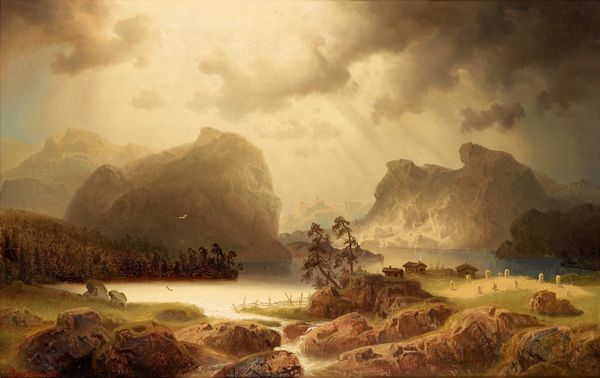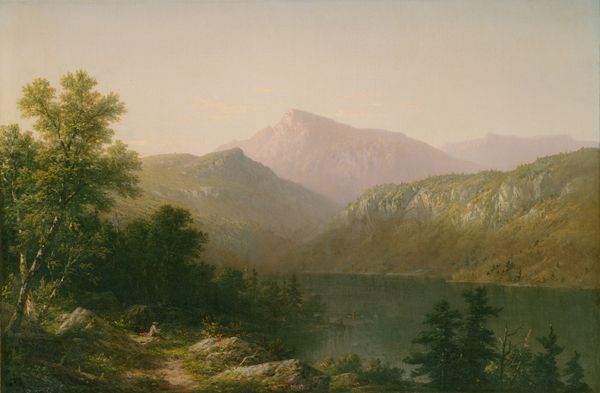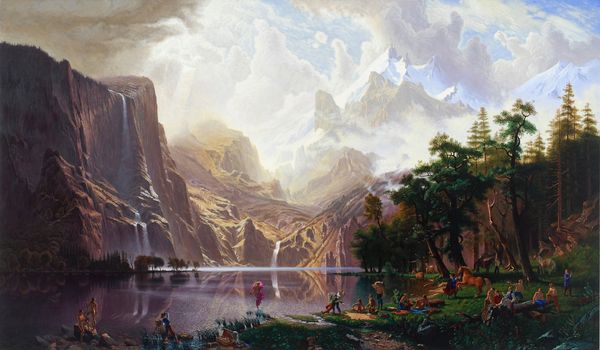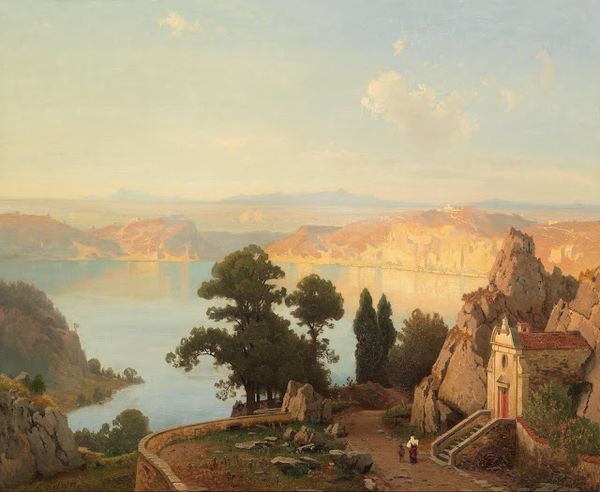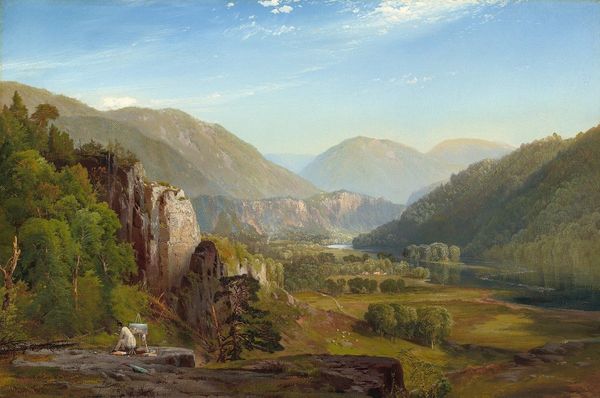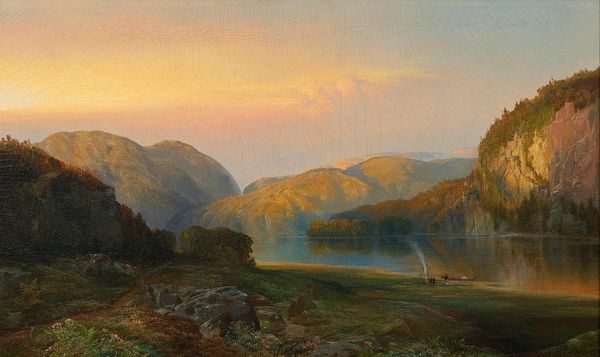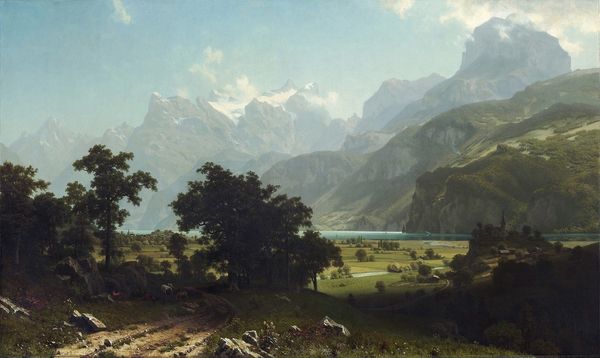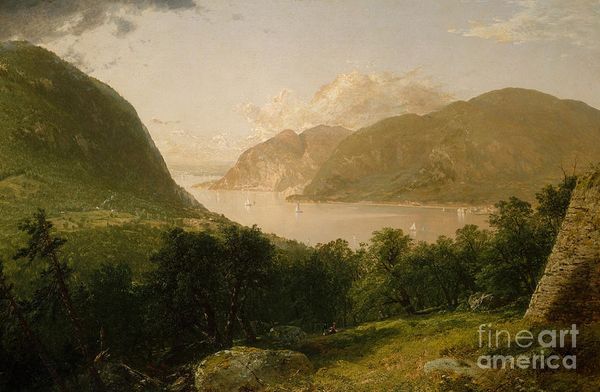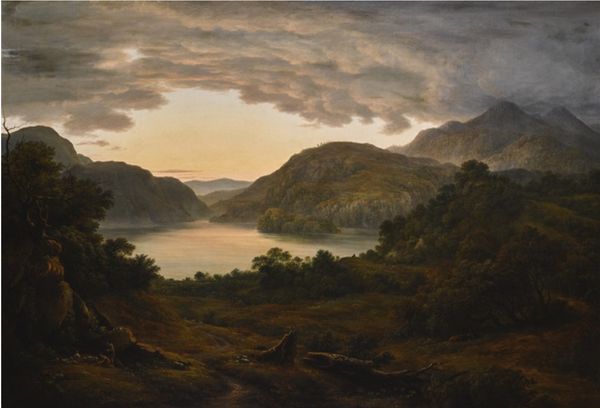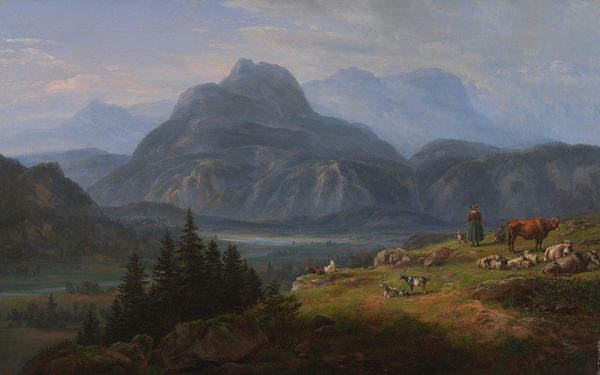
Copyright: Public domain
Editor: We’re looking at "A View of a Lake in the Mountains" by George Caleb Bingham, painted in 1859. It's an oil painting, and it evokes this serene, almost dreamlike state. I’m curious about the scene; it's idealized, almost too perfect. How do you interpret this work, thinking about the social context it was created in? Curator: It’s crucial to understand that Bingham painted this during a period of intense national self-definition in the United States. Landscapes weren't just about pretty scenery; they were often tied to ideas of manifest destiny, the expansion westward, and even economic prosperity. Notice how the small figure of the fisherman almost disappears in the vast landscape. Editor: Yes, the human presence seems deliberately minimized against the grandeur of nature. So, are you suggesting that this idealised landscape is making a specific socio-political statement? Curator: Exactly. The very act of depicting the American landscape as sublime, untamed (despite the tiny fisherman!), reinforced the notion that it was both a gift and a resource, open to exploration and exploitation. Think about who was buying these paintings; merchants, politicians. What would this imagery tell them about America's role in the world, and their place within it? Also, notice the light, isn’t it almost stage lighting? Editor: It does feel theatrical. Almost as if nature is putting on a show for humanity. Curator: And who is the audience of that performance? Bingham, his patrons, the burgeoning American populace. Art becomes a spectacle to legitimize the values of expansion. I wonder, considering today’s environment crisis, if such landscapes might hold a different significance. Editor: That’s a thought-provoking shift of perspective. Looking at the painting now, I see less of an innocent landscape and more of a coded message about power and progress. Curator: Indeed. The politics of imagery are rarely straightforward. Context truly transforms the canvas.
Comments
No comments
Be the first to comment and join the conversation on the ultimate creative platform.
